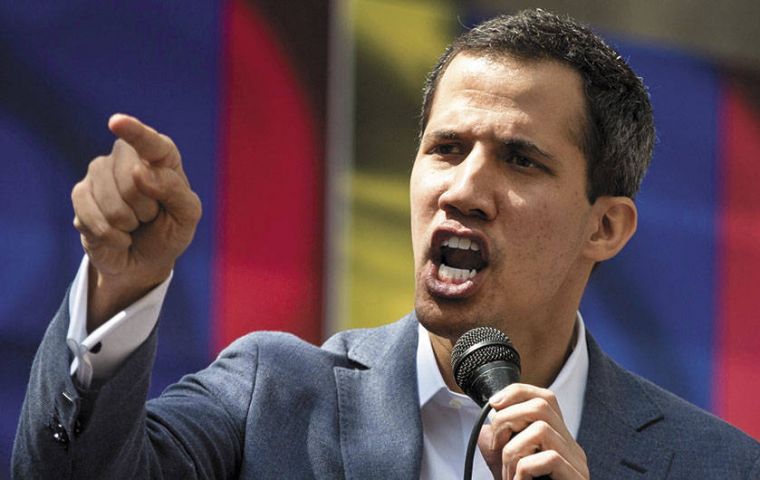MercoPress. South Atlantic News Agency
Uruguay: “Deep concern” about detention of the Venezuelan Parliament president
 The constitutional assumption of Guaidó is recognized by most of the countries of the continent, with the exception of Uruguay, Bolivia and Mexico
The constitutional assumption of Guaidó is recognized by most of the countries of the continent, with the exception of Uruguay, Bolivia and Mexico The Ministry of Foreign Affairs expressed on Monday, through a statement, its “deep concern” regarding the “serious institutional crisis” and the “acts of intimidation” that led to the arrest and subsequent release of the president of the National Assembly of Venezuela, Juan Guaidó , by officials of the Bolivarian National Intelligence Service (Sebin).
From the Ministry of Foreign Affairs it is considered that episodes such as the one that Guaidó lived on Monday “do not contribute to generate the indispensable climate of respect that will allow the overcoming the serious institutional crisis that Venezuela is going through”.
On Monday, Sebin officials allegedly acted “unilaterally” intercepting and detaining for several hours the parliamentarian, self-proclaimed Venezuela’s interim president after the Parliament he presides and part of the international community considered as illegitimate the new term of Nicolás Maduro's government (2019-2025).
In the statement, the Uruguayan government calls to solve the crisis “through a broad, inclusive and respectful national dialogue that contributes to reaching an agreement among all the political and social actors in that country.”
Guaidó had received the recognition and greeting of the Organization of American States (OAS) on January 5, when he took office, while the new term of Maduro, who presented his oath before the Supreme Court on January 10, is not recognized by the majority of the countries of the continent, with the exception of Uruguay, Bolivia and Mexico.
The elections, which took place in May last year and in which the bulk of the opposition did not participate, are identified as fraudulent and that is why a transition period is required to call new elections.




Top Comments
Disclaimer & comment rulesCommenting for this story is now closed.
If you have a Facebook account, become a fan and comment on our Facebook Page!